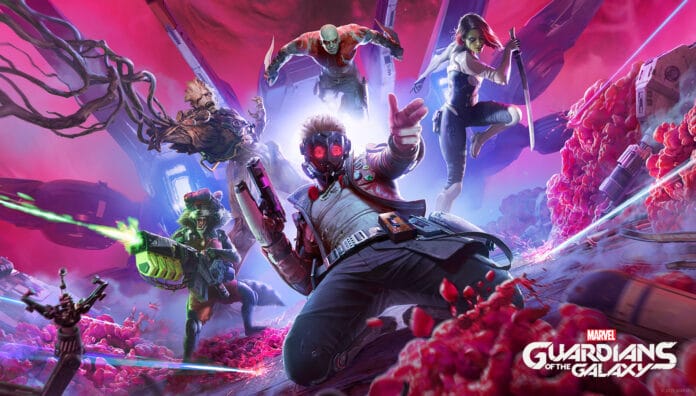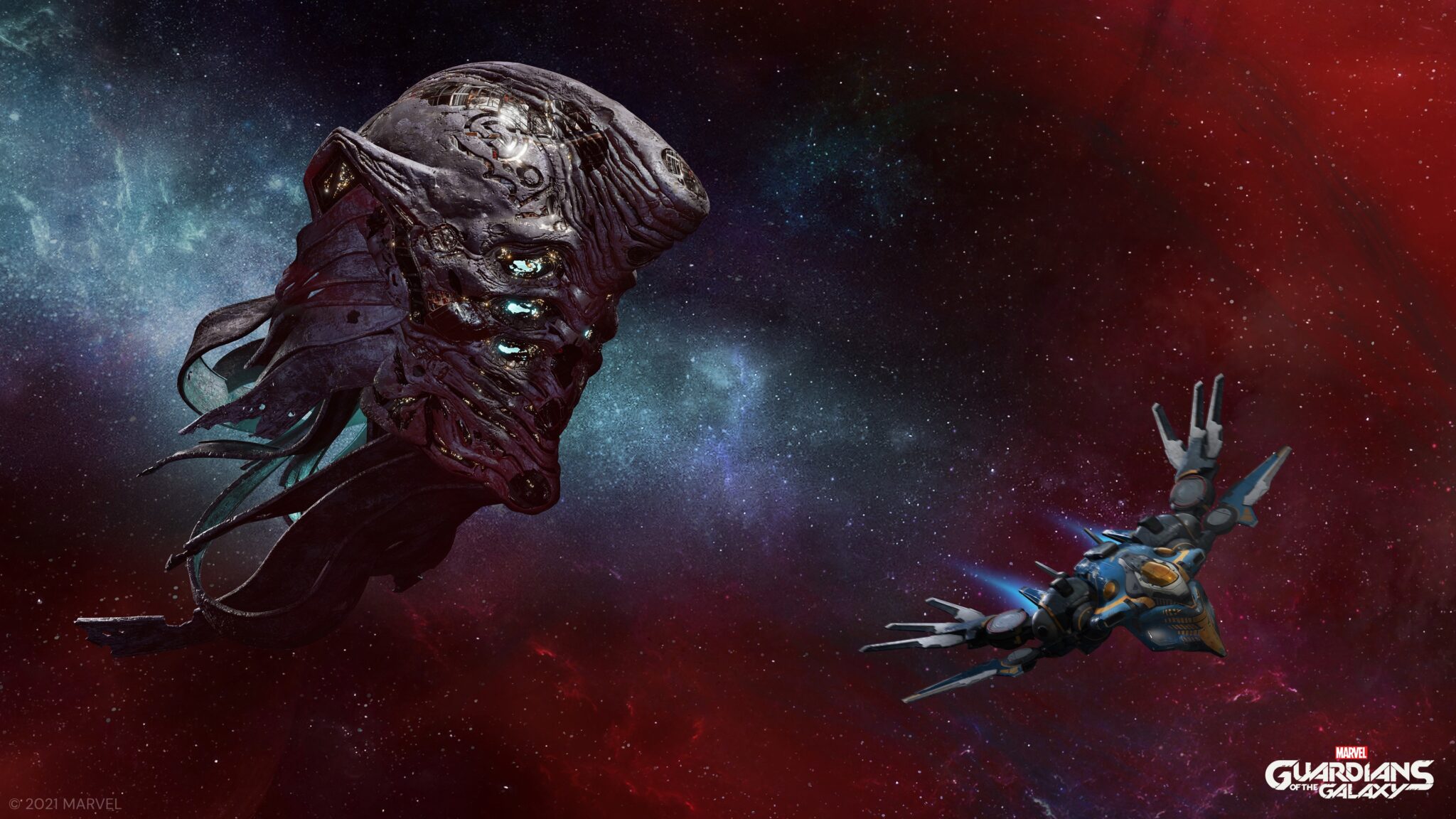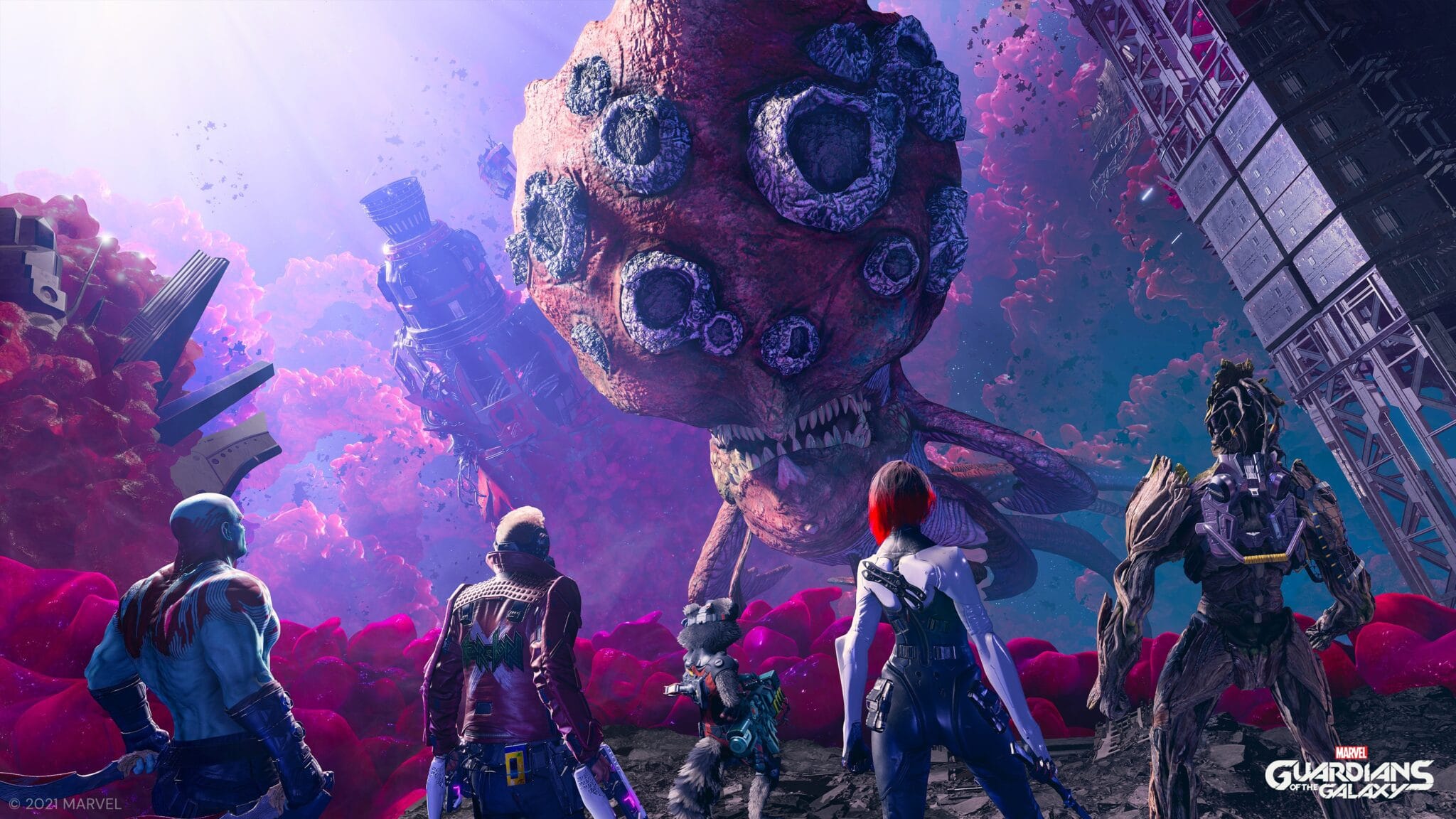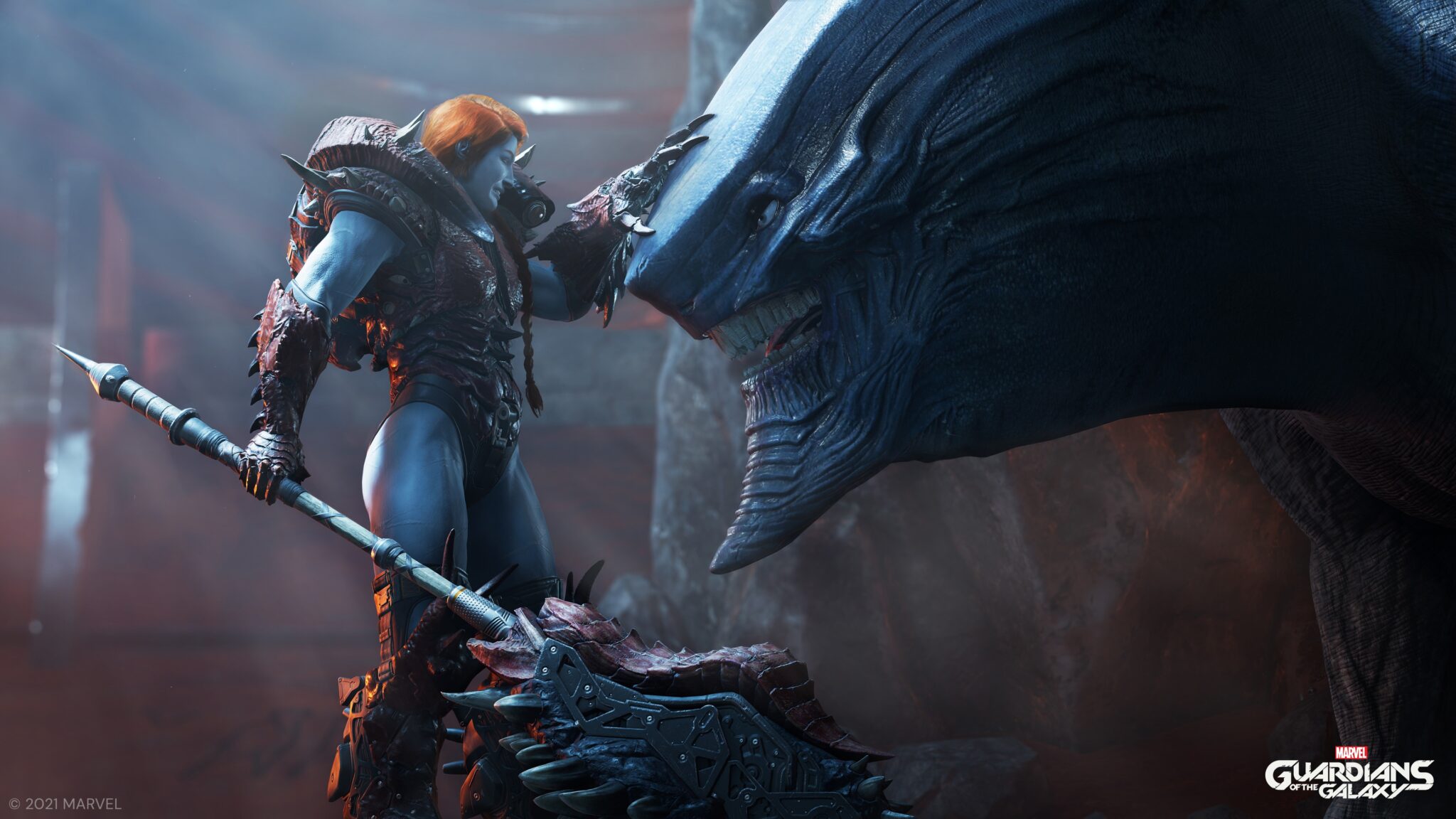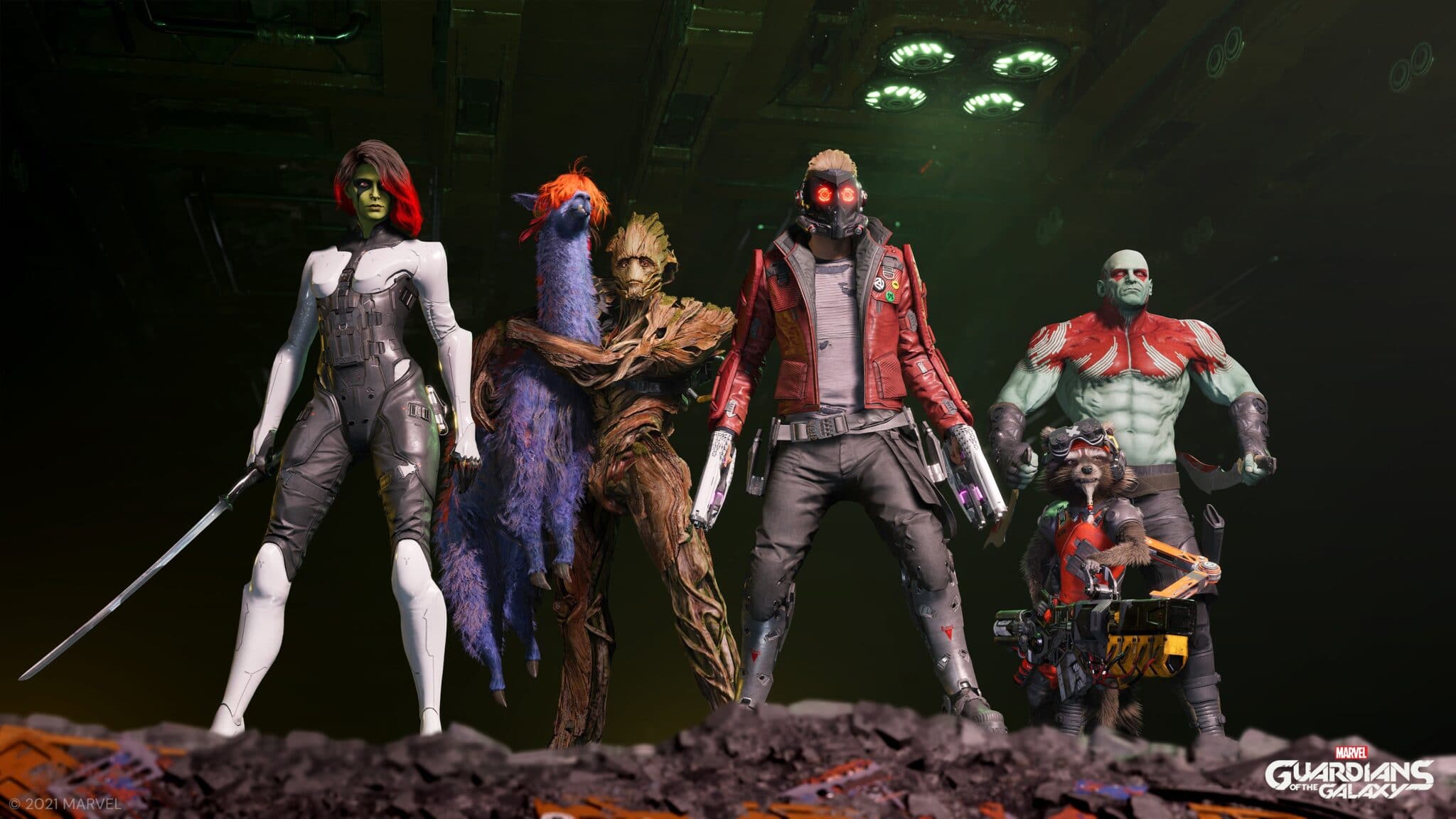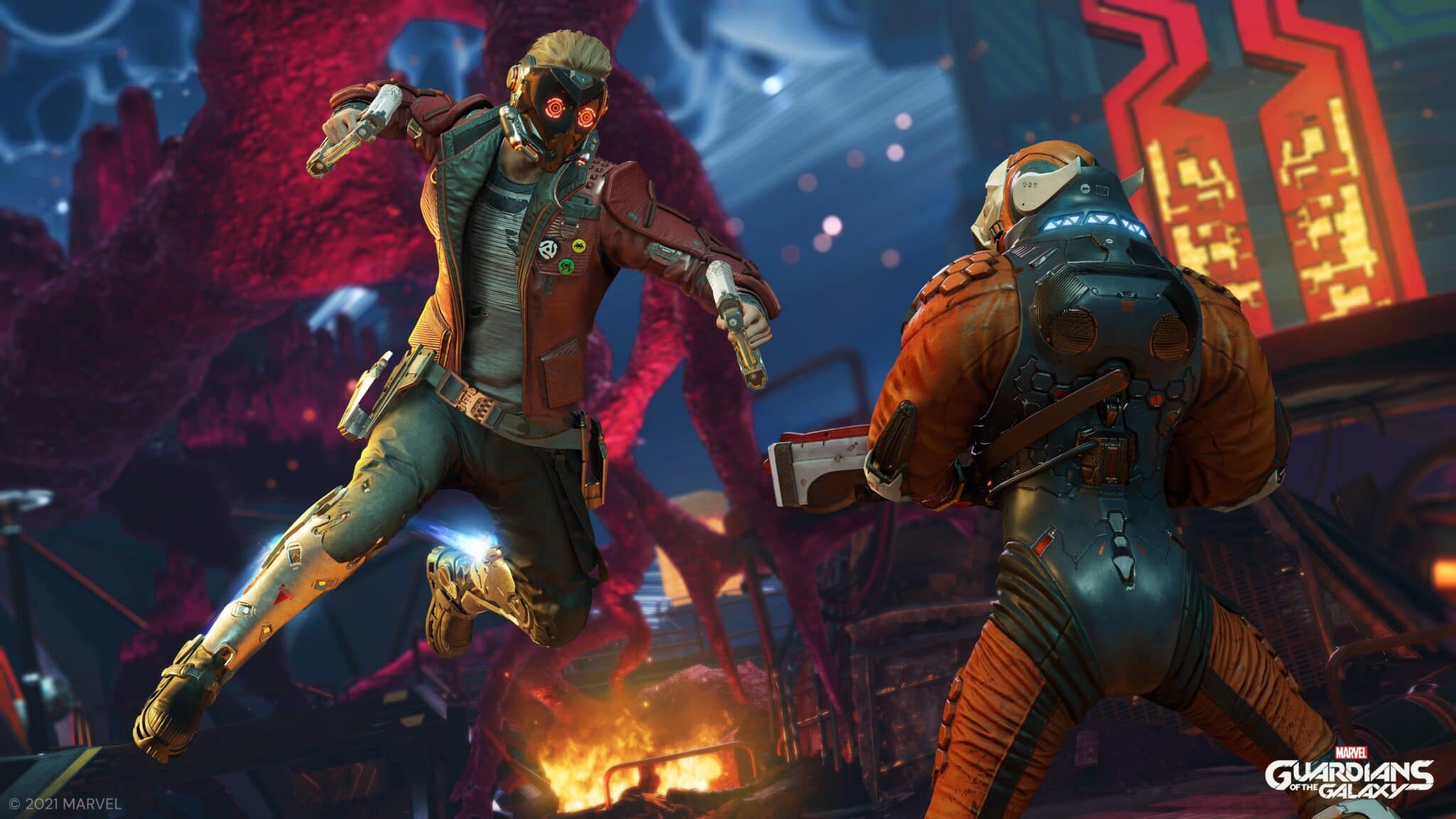Marvel’s Guardians of the Galaxy is clearly different from Marvel’s Avengers. Nevertheless, familiar problems remain – as we found out when we played it.
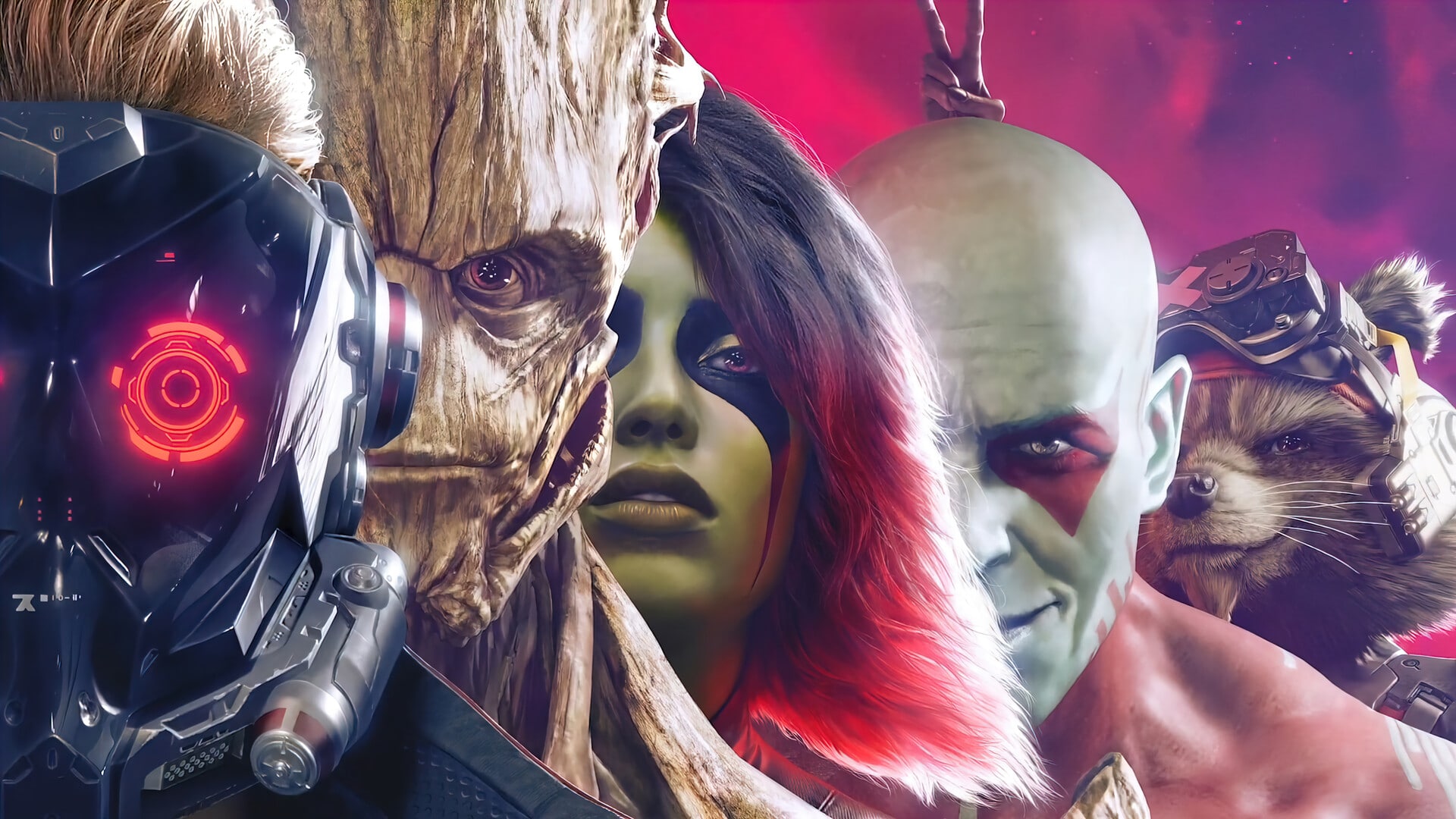
Square Enix had a lot planned for Marvel’s Avengers – and managed very little of it. For Marvel’s Guardians of the Galaxy, a simpler approach is now being taken: The new game about another superhero troupe is not intended to be a “beast of burden”. Instead, the focus is on a complete single-player experience with a big focus on the story
And developer Eidos Montreal, previously responsible for the new Deus Ex role-playing games among others, seems to be tailor-made for the project. We’ve already had a chance to try our hand at a 90-minute chapter of the title, due out on 26 October 2021, for three hours and found: Guardians of the Galaxy does much better than Marvel’s Avengers, but struggles with very similar and at the same time completely new problems.
Table of Contents
Story and presentation
Same, yet different
With the constellation of Guardians of the Galaxy for its own game, Eidos Montreal does not dare to experiment. The plot revolves around the well-known cinema heroes Star-Lord, Gamora, Drax, Rocket and Groot. However, fans of the comics will have to do without (even) more unusual team members such as Moon Dragon, Space Knight Venom or Beta Ray Bill.
Nevertheless, it is not impossible that we will run into one or two of them – after all, Mantis or Cosmo the space dog have already made an appearance in the trailers shown so far. In any case, Eidos holds all the reins when it comes to the story of Guardians of the Galaxy, as they are not adapting any known storylines from the films or comics.
Insomniac Games’ Spider-Man or even Crystal Dynamic’s Avengers have already proven that this can work excellently in the past. For all the criticism of the latter, the adventure around Kamala Khan did not turn out to be particularly innovative
There’s still not much to tell about the actual plot of Guardians of the Galaxy: As usual, the crew of the Milano hires itself out as mercenaries and gets by rather badly than well. And while Peter Quill and Co. are actually just trying to pay off a fine to the Nova Corps space police, they come across a conspiracy by the so-called “Church of Truth” – old acquaintances from the comics – that could take on galactic proportions.
Much to say, little to decide
In fact, it’s far too early to draw a preliminary conclusion about the story of Guardians of the Galaxy – we’ve simply seen too little of it for that. But the presentation already makes a good impression and makes us want to see more. The (English) speakers seem authentic and breathe a lot of life into the wittily written dialogue. The fact that the faces and animations are not in the top league is hardly a negative factor.
For example, when Rocket and Quill scramble over who is the true captain of the Milano or when the actually cold-blooded warrior Drax becomes unusually emotional about the involuntary adoption of a space llama, it is simply fun. Those who also take the time to pay attention to small details – such as the book “Sarcasm for Dummies” in Drax’s room or a poster of pop singer/mutant Dazzler in Peter’s cabin – will be thoroughly rewarded.
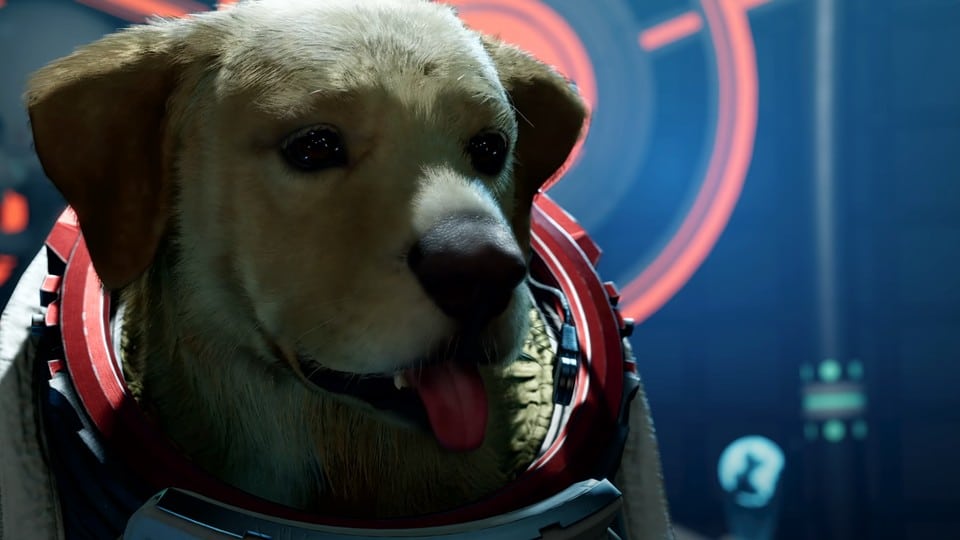
However, we can’t help but find fault with the fact that we have little say in Peter’s rather numerous dialogues in the chapter we played. After all, one of the basic ideas of the game is to let Star-Lord grow into a real leader – or not – and here Eidos could have given us a little more freedom. Whether the finished game confirms or even refutes this first impression remains to be seen.
What is already certain, however, is that Guardians of the Galaxy will present us with a number of choices, but everyone will experience the same ending. It is quite likely that different choices will not have serious consequences.
In the chapter we played, for example, a single decision merely meant that we got to play an optional battle – or not. Whether and what far-reaching consequences this will have, however, we simply cannot say at this point.
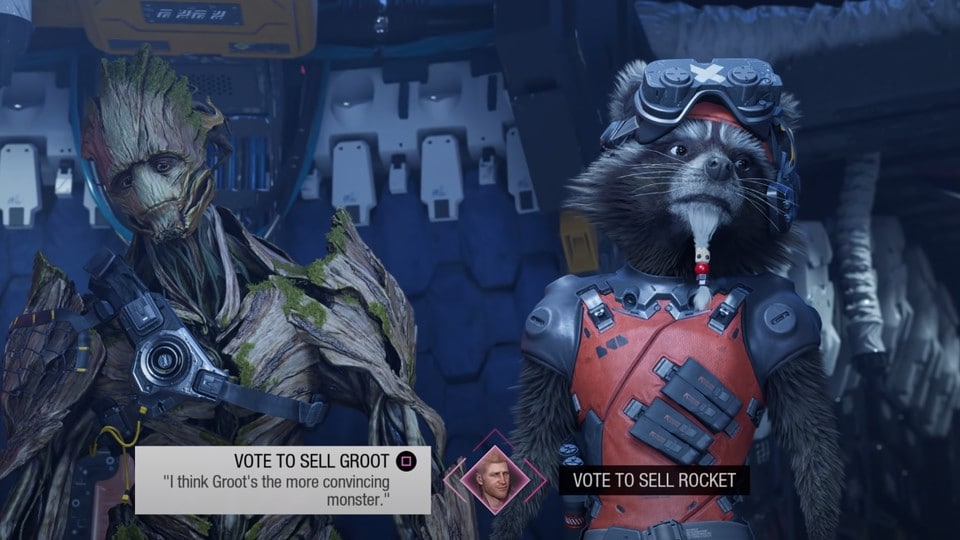
Gameplay, Skills and Upgrades
Welcome to the Guardians
But how does Guardians of the Galaxy even play? In the chapter we were given access to, we started aboard the Milano. There we were free to explore the interior of the ship, have conversations with the rest of the Guardians, play music tracks to Peter Quill’s liking and close a broken fridge door five times.
On board the Milano, we also get access to a workbench where Rocket pimps Star-Lord’s equipment in exchange for resources. We can, for example, use Peter’s elemental pistols to fire more powerful shots or afford upgrades to boots and shields, making Peter tougher and more resilient in battle.
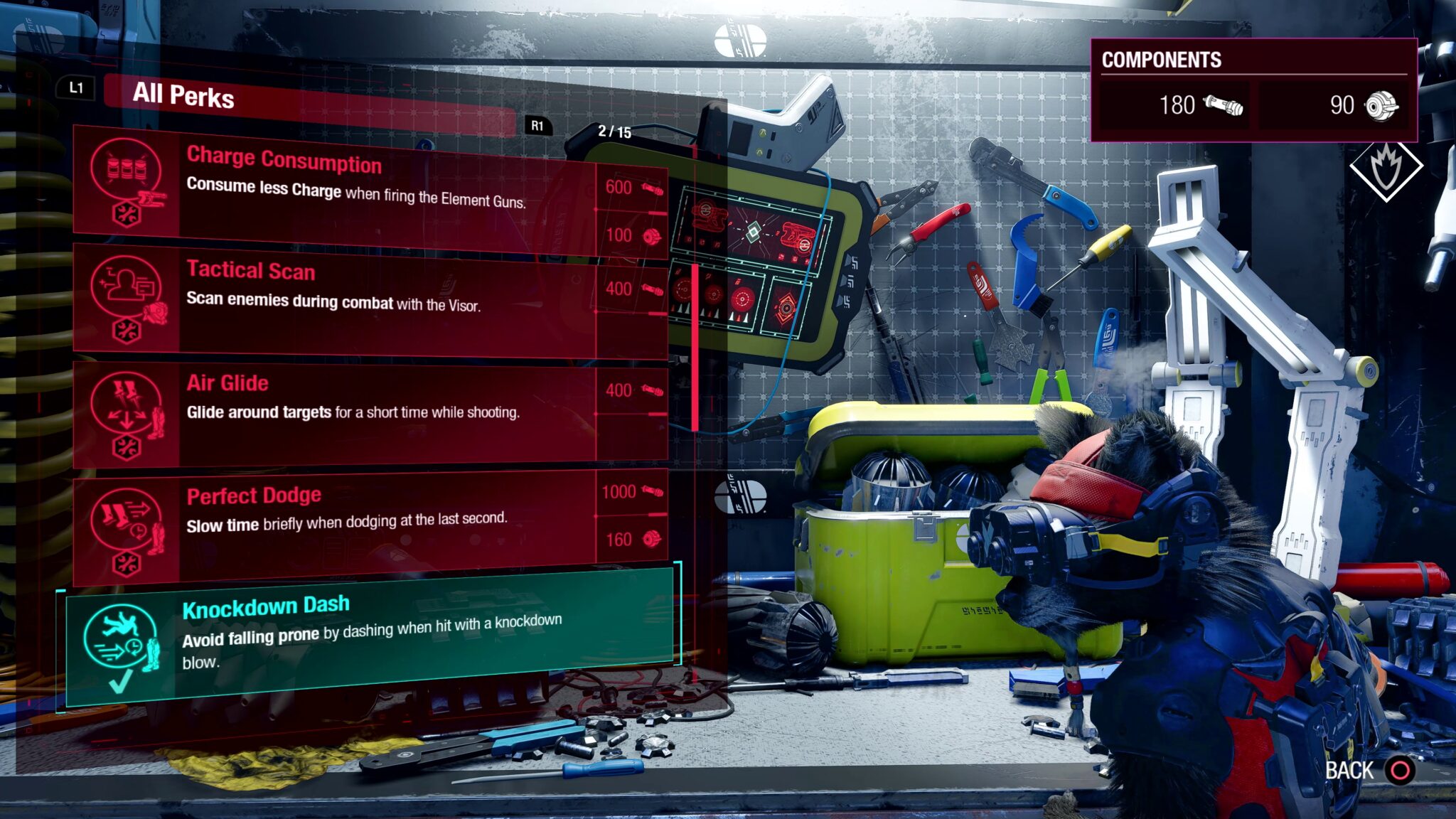
Totally independent of workbenches, a wide variety of outfits can also be selected for the Guardians at any time, which especially make fan hearts beat faster. For example, we could put Rocket in his secret agent suit with sunglasses or Gamora in a costume that strongly reminds us of Zoe Saldana’s MCU look.
And don’t worry: Guardians of the Galaxy does completely without microtransactions. We can simply collect resources for upgrades in the game and open hidden chambers for additional outfits by cracking simple puzzles. Experience points, which give us new skill points after level-ups, are earned by completing battles. And of course, skills become especially important in the actual battles of Guardians of the Galaxy.
From brawl to gunfight to brawl
After we’ve had a chance to explore the Milano, we find ourselves in a Nova Corps station. However, things don’t go quite right there – which we don’t want to spoil at this point – and the Guardians quickly stumble from one confrontation to the next.
The battles in Guardians of the Galaxy are structured very arena-like – a conflict is only resolved once we have defeated the last enemy. After that, our efforts are evaluated and rewarded accordingly with experience points. In the chapter we played, we fought our way through various corridors and open rooms.
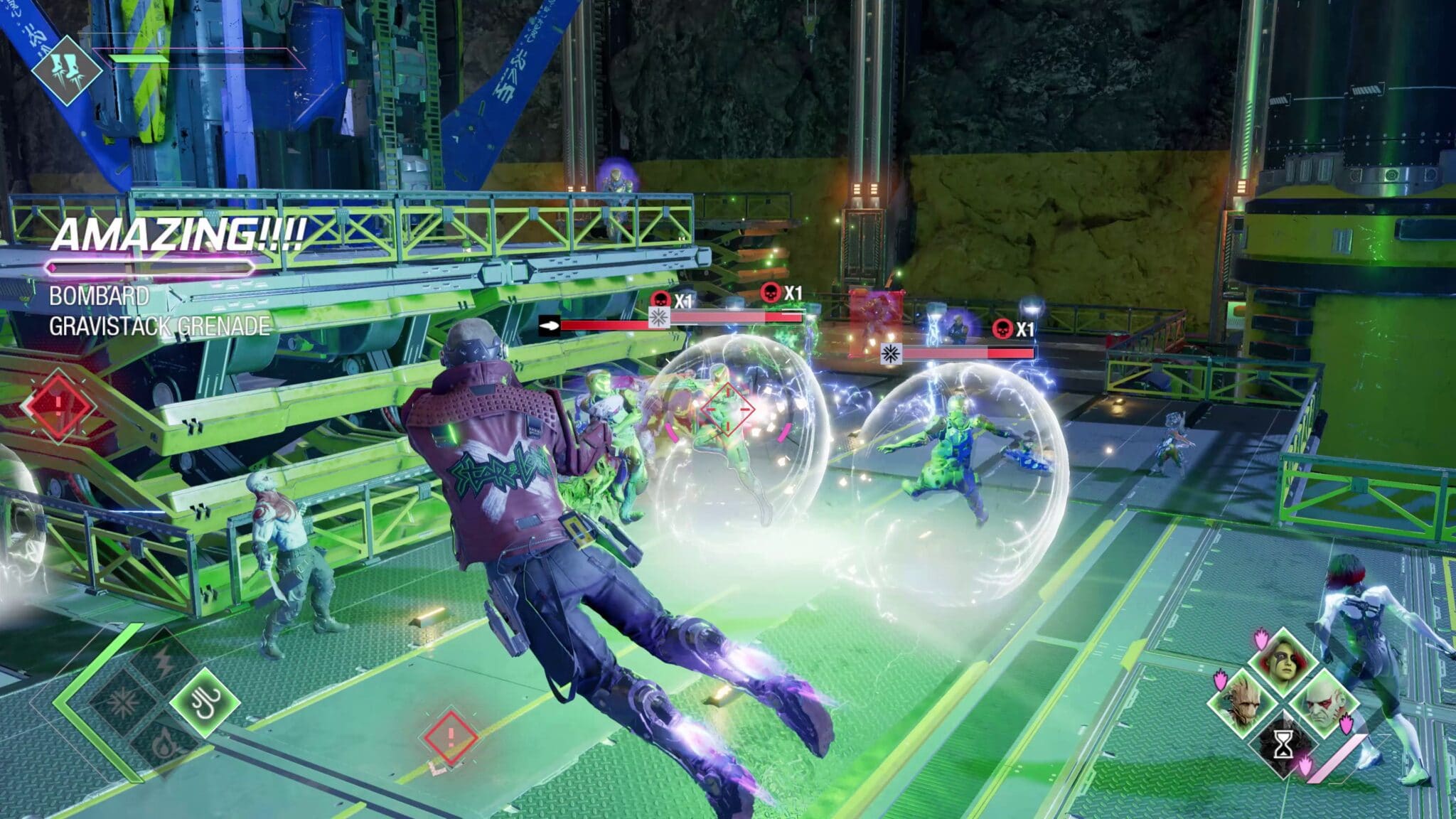
In between, we’re mostly free to explore the tubular levels, listen in on the discussions of the rest of the Guardians and have a say if necessary. Every now and then, we have to make our way with the help of a certain team member, for example, by Rocket hacking the controls of a door – sometimes quite reluctantly.
Playfully reduced, yet overloaded
The actual battles are reminiscent of Marvel’s Avengers – no wonder, since Eidos was also involved in its development. In contrast to Avengers, however, in Guardians of the Galaxy we are not assisted by fellow players, but by AI comrades. Gamora, Drax and Co. act less independently, of course.
Peter can give them orders to perform special attacks that have been unlocked with skill points. And here it’s fun to combine the different abilities to exploit the respective weaknesses of our opponents. For example, we break through their shields with the help of the frost variant of Peter’s elemental functions so that Groot can pin them down with his tree tendrils. Last but not least, Rocket throws a bomb at the pile and/or Drax takes them by surprise with a storm attack.
This teamwork not only does a lot of damage, but is also extremely satisfying to watch. However, the biggest problem of Guardians of the Galaxy’s battles quickly becomes apparent in all the on-screen spectacle: the overview, or rather the lack of it.
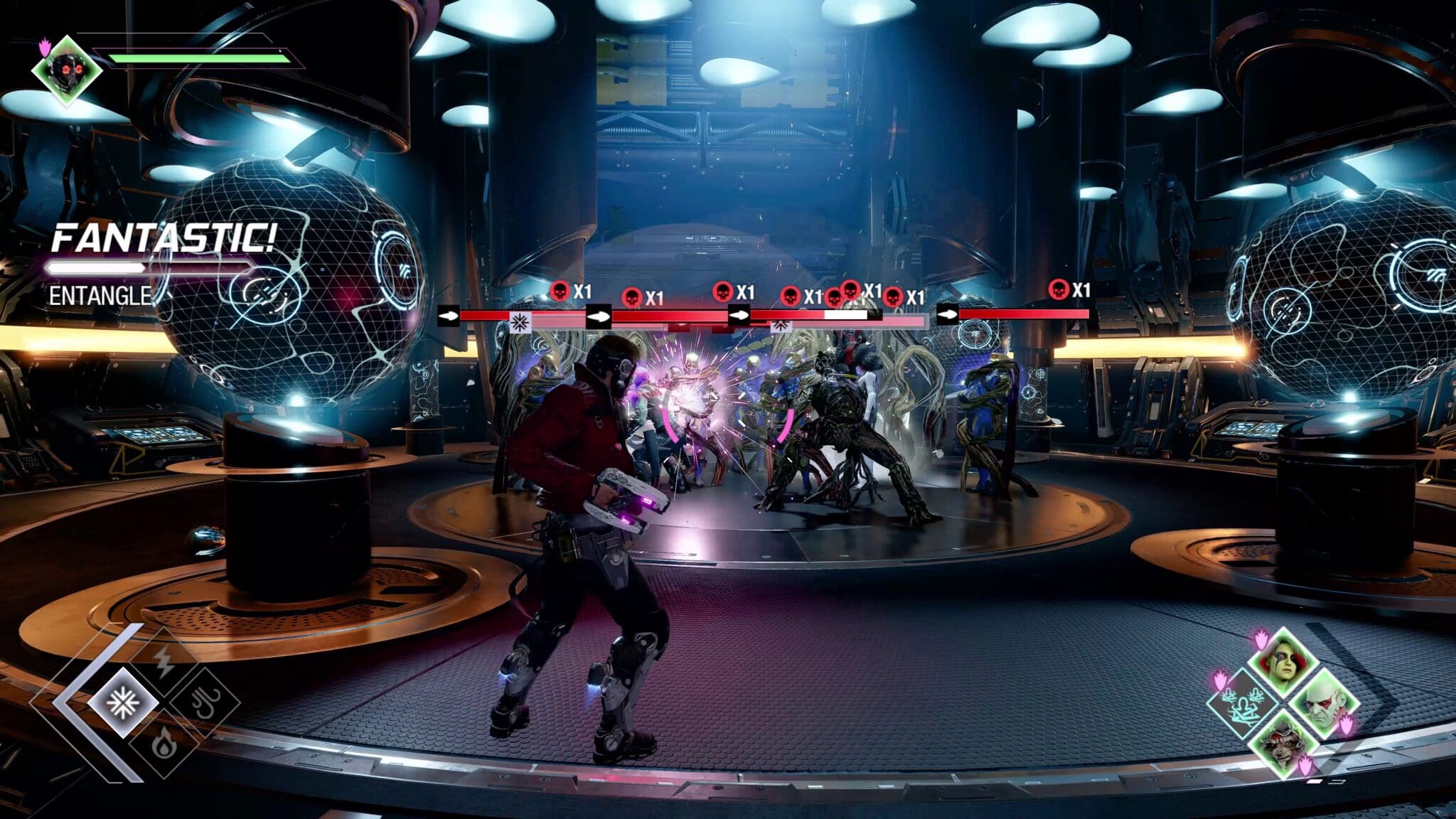
Just imagine: We are in a room full of enemies scurrying around. Each of them comes with a colourful glowing effect or a colourful weapon that lights up or shoots projectiles that are at least as garish. At the same time, our four AI comrades join the fray, bringing their very own effects and animations to the party. And then there are all the battle cries of our friends and enemies, while songs by bands like A Flock Of Seagulls or Pat Benatar sound from the loudspeakers. Phew.
Having so much happening on screen at once can be quite exhausting. It also doesn’t help that there is no cover system for Peter, who fights mainly with firearms. This means that we also have to keep moving constantly to keep Star-Lord out of the crossfire of our enemies – which of course doesn’t help to keep an overview of the battlefield.
Sure, within our three-hour session we eventually got to grips with the battles and with a little practice you definitely get the hang of it. Whether the battles will become less hectic and partly uncoordinated in the long run, however, simply cannot be judged at this point in time.

